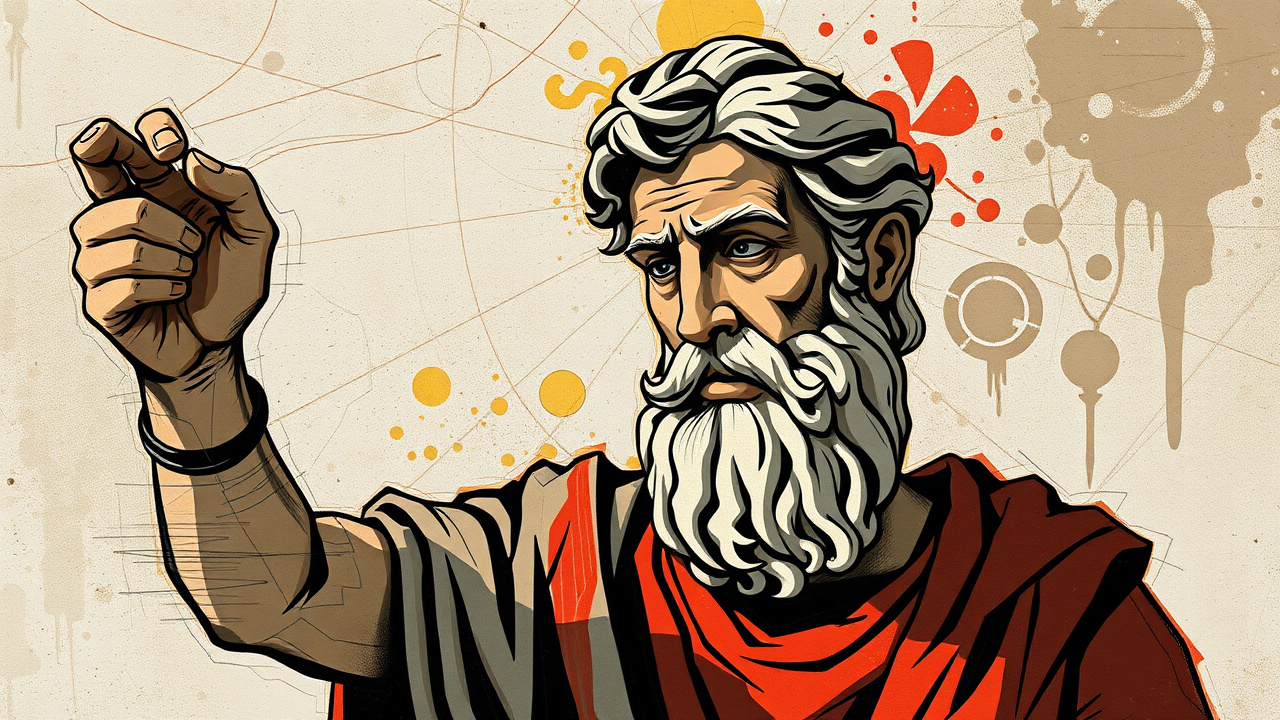Understanding the Misconception of Daily Stress
In our modern lives, stress often seems like an unavoidable constant. However, stoicism teaches us that the stress we experience daily may not be as tied to our external circumstances as we think. This misconception can lead to unnecessary suffering, as we might attribute our feelings to specific events rather than recognizing that our interpretations and reactions influence our emotional state.
As we delve deeper into the Stoic perspective, we learn that it is not the events themselves that disturb us but our judgments about them. By adjusting our perceptions, we can significantly lessen the grip of stress on our lives. This transformative approach encourages us to examine our thoughts critically and choose a more rational response to life’s challenges.
The Role of Perception in Stress
Perception plays a crucial role in our experience of stress. According to Stoic philosophy, we have the power to control how we interpret the events occurring around us. It is essential to recognize that not every challenge must be met with anxiety or dread. Instead, by perceiving these challenges as opportunities for growth, we can foster resilience and diminish stress.
Moreover, imagining the worst-case scenarios can often pave the way for a more balanced mindset. This technique, known as negative visualization, can help individuals appreciate their current circumstances more fully and develop a stronger capacity to deal with stress. By evaluating our thoughts and perspectives, we empower ourselves to change how we feel.
Practical Stoic Techniques for Managing Stress
To effectively manage daily stress, students of Stoicism often employ several practical techniques. One key method includes journaling, which allows individuals to reflect on their thoughts and feelings. This daily practice can reveal patterns in thinking that may contribute to stress, offering insights into how to change these narratives.
Another important technique is mindfulness, which can be heightened through meditation. By taking a step back and observing your thoughts without judgment, you can create space between yourself and your stressors, facilitating a more composed response. Such mindful practices can lead to greater emotional clarity and reduce anxiety in the face of various life challenges.
Engaging with the Stoic Community
Engaging with like-minded individuals can also serve as a valuable resource in your Stoic journey. Online forums and local meetups centered around Stoic discussions encourage the exchange of thoughts, strategies, and experiences. These connections not only provide support but can also inspire new ways of thinking about personal stressors.
Additionally, there are numerous books and resources available that delve into Stoic philosophies and how they can aid in stress management. Exploring these materials not only bolsters understanding but also keeps the teachings of Stoicism at the forefront as you navigate your daily life.
The Relationship Between Stress and Modern Society
Modern society often exacerbates stress levels due to fast-paced lifestyles and constant connectivity. The pressures to succeed, maintain relationships, and adapt to changes can overwhelm anyone. Stoicism invites individuals to pause and reassess their priorities, providing a framework for understanding that much of this external noise is beyond their control.
By focusing instead on what can be controlled – namely, one’s responses – individuals can reduce their stress considerably. Adopting this Stoic approach helps create mental clarity amidst the chaos, promoting a lifestyle centered on peace and rational thought.
Conclusion: A Stoic Approach to Stress
Ultimately, understanding that your daily stress isn’t entirely rooted in external circumstances can transform how you approach life. By embracing Stoic principles and recognizing the power of perception, individuals can learn to navigate stress more adeptly. This philosophy not only alleviates pressure but also enriches our experiences, allowing us to engage more meaningfully with the world around us.
As you reflect on your own understanding of stress, consider implementing these Stoic practices into your daily routine. The path may require effort, but the potential for peace and resilience is well worth the journey. For more insights, check out our video linked below.
FAQ
What is Stoicism?
Stoicism is an ancient Greek philosophy that teaches the development of self-control and fortitude as a means to overcome destructive emotions. The philosophy emphasizes rationality and virtue as the foundations for living a good life.
How can Stoicism help with stress?
Stoicism helps individuals understand that much of their stress comes from their perceptions and reactions rather than external factors. By changing one’s perspective and focusing on what can be controlled, stress can be significantly reduced.
What techniques are recommended for managing stress?
Recommended techniques include journaling to reflect on thoughts, practicing mindfulness meditation to enhance emotional clarity, and engaging with the Stoic community for support and shared experiences.
Can Stoic practices be applied in everyday life?
Yes, Stoic practices can easily be integrated into daily routines. By consciously applying principles like negative visualization, prioritizing personal responses, and reflecting on one’s thoughts, individuals can foster a renewed sense of calm.
Where can I learn more about Stoicism?
There are many resources available, including books, online forums, and videos that explore Stoicism and its application to modern life. Engaging with these resources can deepen understanding and provide practical applications.
Watch the Video:


Leave a Reply